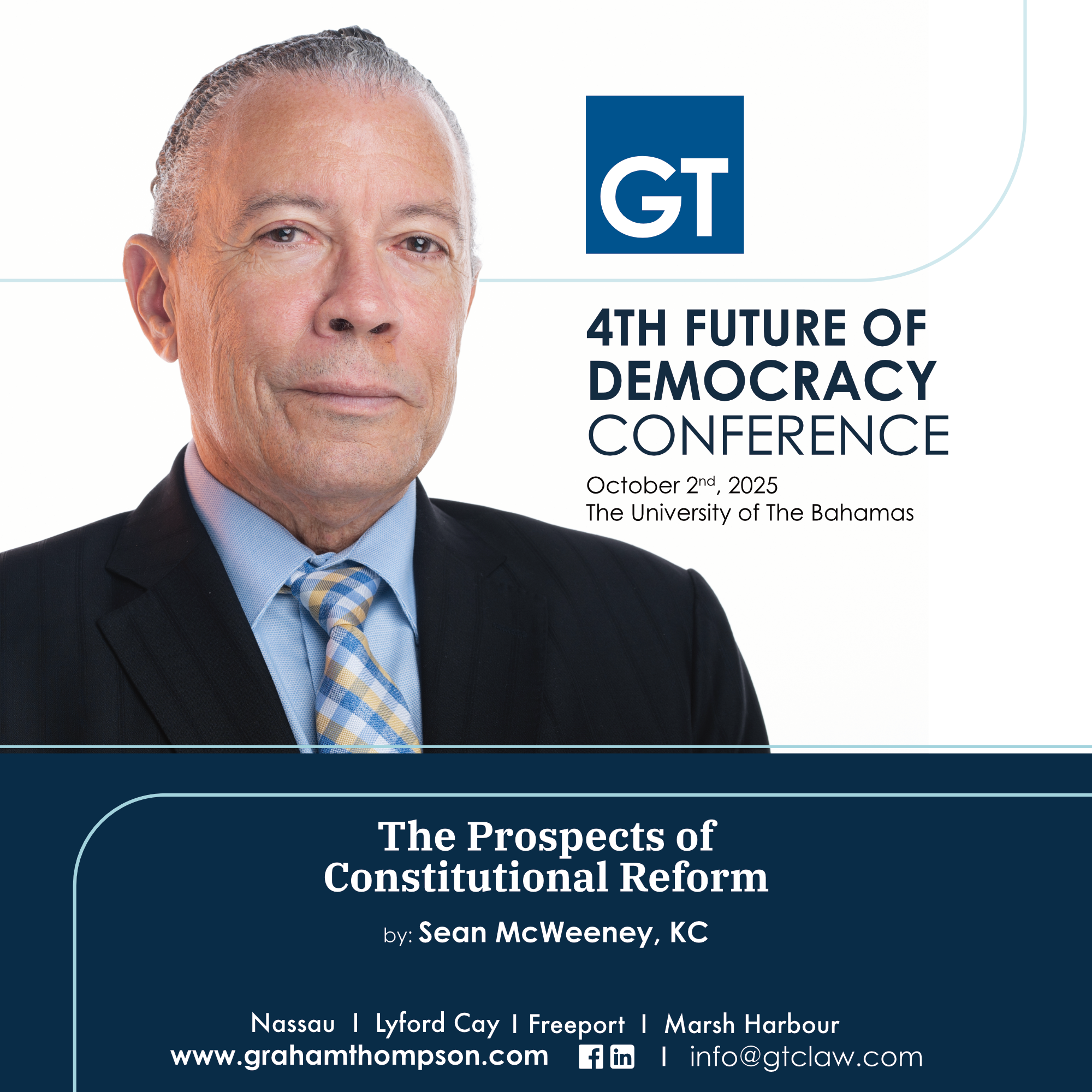Sean McWeeney, KC, on Prospects of Constitutional Reform

Nassau, The Bahamas. GrahamThompson Consultant Counsel Sean McWeeney, KC, was a featured speaker at the recent 4th Future of Democracy Conference, hosted by The University of The Bahamas. He presented on the subject “The Prospects of Constitutional Reform”.
One of the underpinnings for the presentation, was his observation “that unlike a great many other Commonwealth jurisdictions, the Bahamian Constitution reposes very considerable power in the Bahamian people – the Bahamian electorate – by requiring their approval in a national referendum for a great many things under the Constitution”. He emphasised, “these are changes that can go nowhere, and can never become law, unless they are approved by the people”.
Mr. McWeeney discussed the difficulties associated with “obtaining popular support for constitutional reform”. Noting in particular, failures of the two previous constitutional referenda in The Bahamas [2002 and 2016], and what he ascertained as the primary takeaways of those two experiences.
A key factor highlighted by Mr. McWeeney, was the importance of people’s comfort level with the notion of making changes to the Constitution.
“It's important to get the electorate comfortable with the idea that it’s OK to periodically review and alter the Constitution to meet changing circumstances and to introduce innovations that may help improve the rules under which we live”. He underscored that the Constitution does in fact provide for change, "to ensure its continued relevance, adaptability and viability”.
Mr. McWeeney shared with conference attendees, specific areas he characterised as low-hanging fruit, “that should be considered for the first few phases of constitutional reform”. Read his full presentation here, The Prospects of Constitutional Reform, by Sean McWeeney, KC.








